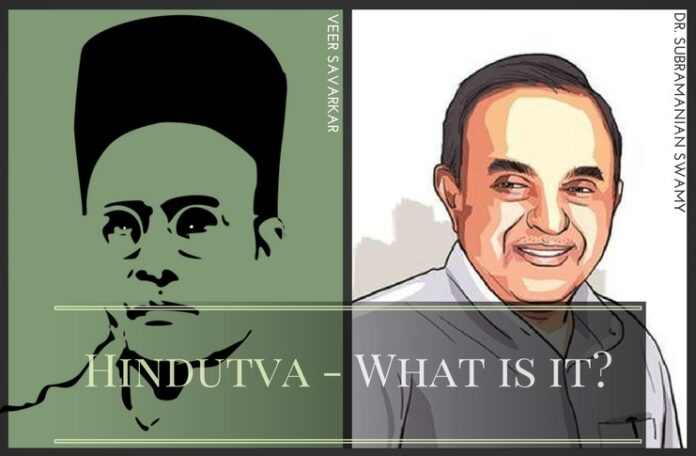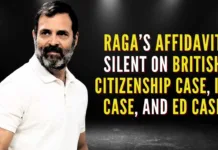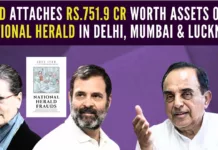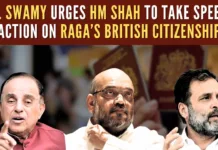
Defining Hindu, Hinduism and “who is a Hindu” has mystified many till date. Some have broadly defined Hinduism as the “way of life” and not a religion. Very few have come up with a thought process of clearly defining the Hindu identity which binds this nation together. What has been the secret ingredient which the Hindus possess; that after more than 1200 years of brutal foreign occupation still retains a majority of around 80% and the country very much secular, congenial and peaceful for its inhabitants of all faiths.
Veer Savarkar wrote his seminal book Essentials of Hindutva in the year 1923; when he was lodged in Ratnagiri jail back from the Andaman cellular jail.
From Sri Aurobindo to Lokmanya Tilak, Swami Vivekanda to Veer Savarkar, Mahatma Gandhi to Guru Golwalkar, Hegdewar to Deoras, Mohan Bhagwat to Dr. Swamy – all have tried to define Hindutva in their own ways and tried to unravel the conundrum of what constitutes a Hindu. Some of the formulations have been broad whereas some narrower, but the essence remains the same.
Couple of accounts which stands out are Veer Damodar Savarkar’s book called Essentials of Hindutva and Dr.Subramanian Swamy’s Virat Hindu Identity: Concept and Its Power.
Veer Savarkar wrote his seminal book “Essentials of Hindutva” in the year 1923; when he was lodged in Ratnagiri jail back from the Andaman cellular jail. Veer Savarkar introduced the concept of Hindutva – loosely translated to Hinduness in his attempt to usher in a renaissance of thought process of oneness among populace separated by geography, appearance, sartorial habits, food, customs, caste, sects and culture. Not many books have rekindled this kind of passion which Savarkar could elicit in the brief 54 paged book. Even today after almost 100 years after his book was penned; its relevance in today’s world is telling and almost prophetic.
In this book of great philosophical value, he delinked Hindutva from Hinduism which then was looked more from a socio-religious point of view. It would not be wrong to say that his concept of “Hindu” surely has inspired many articles of the constitution of India and finds de-facto acceptance among vast section of the people.
As per Savarkar, A person for whom India is a “Matrubhu” (place of birth) cannot be Hindu if he/she doesn’t consider this nation as their “pithrubhu” and/or “punyabhu”.
Savarkar defines a Hindu as one who regards the geographical area from River Sindhu to the seas as his/her “pitrubhu” (Land of forefathers or Fatherland) as well as his/her “punyabhu” (Holyland). He also describes why a consolidated Hindu mindset is essential for a strong nation forming the strong foundation of culture, ethos and values. And after almost 100 years from when this book was written; our population has quadrupled from 30 crores to 1.25 billion; the nation’s secularism and ethos are being safeguarded by the overwhelming majority of the mass who consider themselves Hindus.
As per Savarkar, A person for whom India is a “Matrubhu” (place of birth) cannot be Hindu if he/she doesn’t consider this nation as their “pithrubhu” and/or “punyabhu”. This denotation clearly put the Muslims and Christians as not Hindus as they consider their “punyabhu” as Mecca and Jerusalem respectively. He also says that this definition neither can be too rigid nor it can be too elastic and explains how a Scots-Irish lady Sister Nivedita can be embraced as a Hindu because she has accepted the “sanskriti” (culture and ethos) of this great nation. He also says these are exceptions to the core definition of a Hindu which should be permitted.
Savarkar wrote this book at a time when there was considerable churn in the country towards attaining complete freedom from the British and the mass vertically split on religious lines. Among Hindus there was further rampant division on caste and sect lines. His many references to Aryans were based on the then understanding of Aryans who got naturalised in this land after crossing the Sindhu river. Savarkar delinks Hindu from the citizenship of the nation which one can attain based on request of naturalization or by right of birth.
The difference in Swamy’s and Savarkar’s version is the former doesn’t insist on the need for “punyabhu” being India; thus broadening the spectrum of Hindutva.
Modern anthropological studies have shown that the Aryan invasion theory and the Aryan-Dravidian divide was bogus and a piece of fiction which has been debunked by extensive DNA research. It is safe to say that the pervert Aryan Invasion theory was successfully used by the British as a cruel tool to divide and rule India. Dr.Swamy’s premise of Virat Hindu identity is based on this modern understanding that Hindus (Hindustanis by extension) residing in North and south of India irrespective of caste, religion and creed are one homogenous group as well as borrowing the basic tenets from Savarkar’s and others definition of Hindu and what constitutes Hindutva.
As per Dr. Swamy’s broader formulation of Hindutva, one needs to develop Virat Hindu Identity where he elucidates lucidly in eight well-defined components in his book. A Virat Hindu is the one who needs to regard the concept of Akhand Hindustan where its inhabitants from Himalayas to the Indian ocean all belong to same genetic family. Dr.Swamy has emphasized the age-old spiritual fact that; need to meet material goals should align with the spiritual advancement. There is no room for induced religious conversion and necessary laws should be put in place to prevent it. The prevalent caste system which has polluted the original chatur-varna system needs to purged from our society and politics in the larger national interest. Other aspect mentioned is the importance of every Hindu attempting to learn Sanskrit along with their mother tongue and slowly transform Sanskrit as the link language among all citizens. Lastly, he emphasized the need for establishing the governance model on RamRajya incorporating the tenets of Arthashastra of Chanakya.
Dr. Swamy has also clearly articulated the distinction of a Hindu, concept of Hindustan and Bharat – which denotes the sovereign republic. Hindustan being known as the land of Hindus and all its inhabitants are called Hindustanis. According to Dr.Swamy, Any non-Hindu who acknowledges that his ancestors were originally Hindus i.e., his/her “pitrubhu” qualify as Hindustani. The difference in Swamy’s and Savarkar’s version is the former doesn’t insist on the need for “punyabhu” being India; thus broadening the spectrum of Hindutva. It is thus germane to review the framework of Hindutva through unbiased eyes failing which we continue to wail and wallow in shadow of ignorance.
- Two-faced Pakistan: The real culprit behind Afghanistan’s turmoil - August 29, 2021
- The meteoric rise of ‘Thala’ Ajith - August 6, 2018
- India’s options on Maldivian imbroglio - February 13, 2018











स्वामी जी का जवाब नही भक्त हुन मैं
Ram the lutyens laundiya is living in cocktail circuit. His masters living for free shameless in 10JP are not qualified to lead even the anti Hindu congress party & never the nation.
We have seen 70 years of slaves romila thapar & irfan habit. Just shut up.
Pranam sir,
Aap Jese logon k sammukh natmastak honey k siva aur koi tippani karne ki haisiyat nhi hai meri.
A well written article by the IT Engineer shedding light over misconception prevailed or made to prevail among Hindusthanees by vested interests. Logically concepts of Pithrubhu and Punyabhu cannot be ignored by any one be it a social scientists or a practitioner. WELL DONE.
By the way, Mr. Ashwath’s response to Ram’s advise is resounding. Keep it up.
visionary article by an Engr. Appears to be a bit short, I was expecting to be it as big as Bhrtiya Sanskriti is.
Thanks for enlightening us .
A profoundly deep social issue like Hindutva and Hinduism is not something a software engineer should try to indulge in. That’s the feeling I get when I read this incoherently written article without any deep understanding of what Savarkar’s philosophy was all about. Please let the social scientists and political experts of India address such issues and you should stay out of it! Because you are basically not qualified!
Dear Mr.Ram,
Thanks for taking time providing your feedback. I have written this article after reading Savarkar’s and Dr.Swamy’s book which i have quoted. However, I dont agree that only political scientists and experts can talk or write about a certain topic. Perhaps you should understand that Freedom of expression is not the domain of the chosen few and certainly not restricted based on qualifications. However, I appreciate your right to disagree with my views.